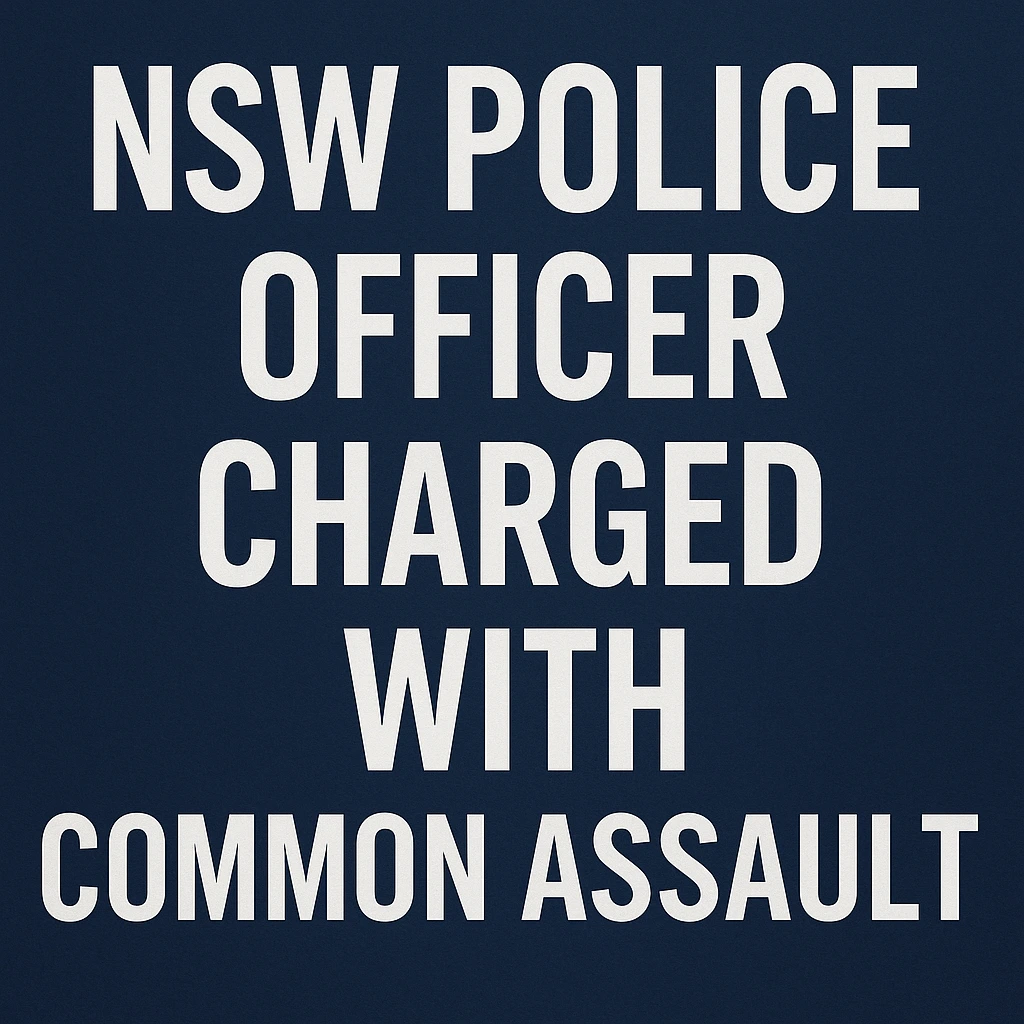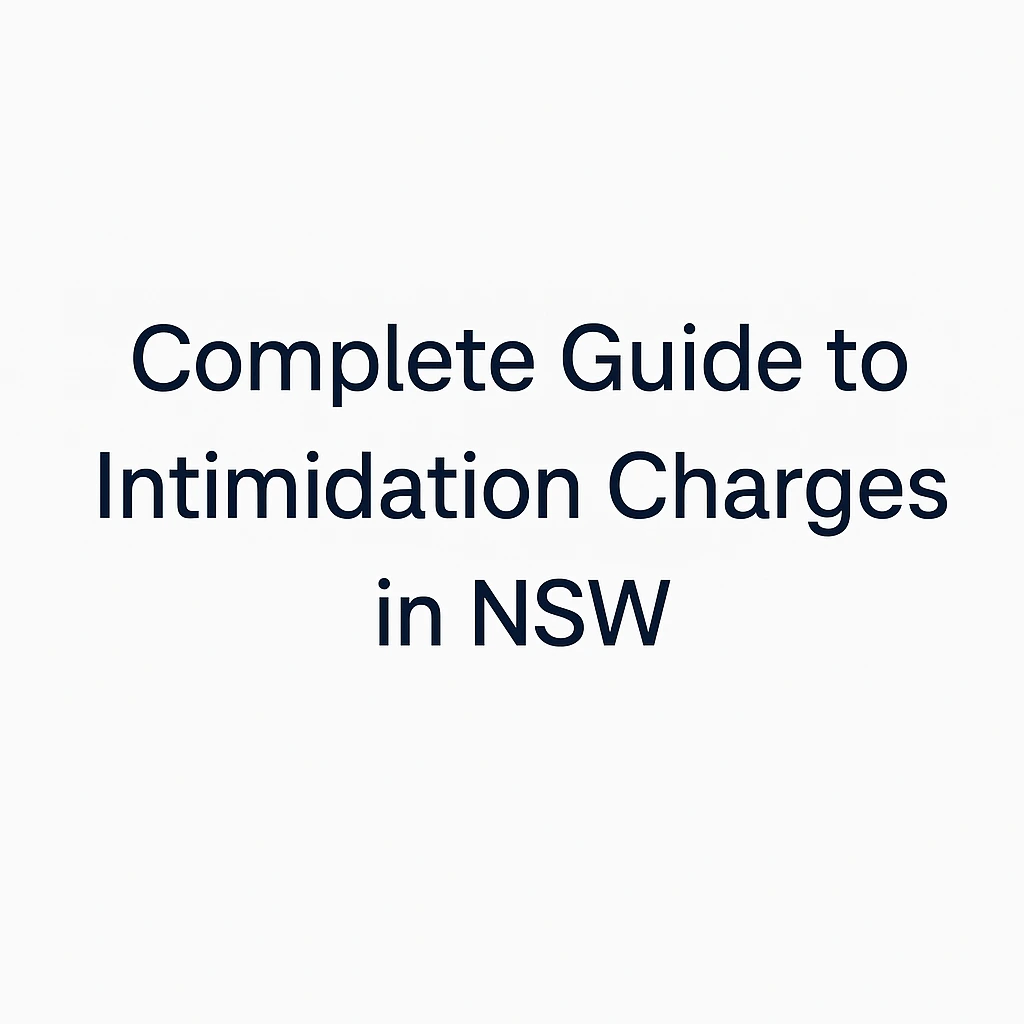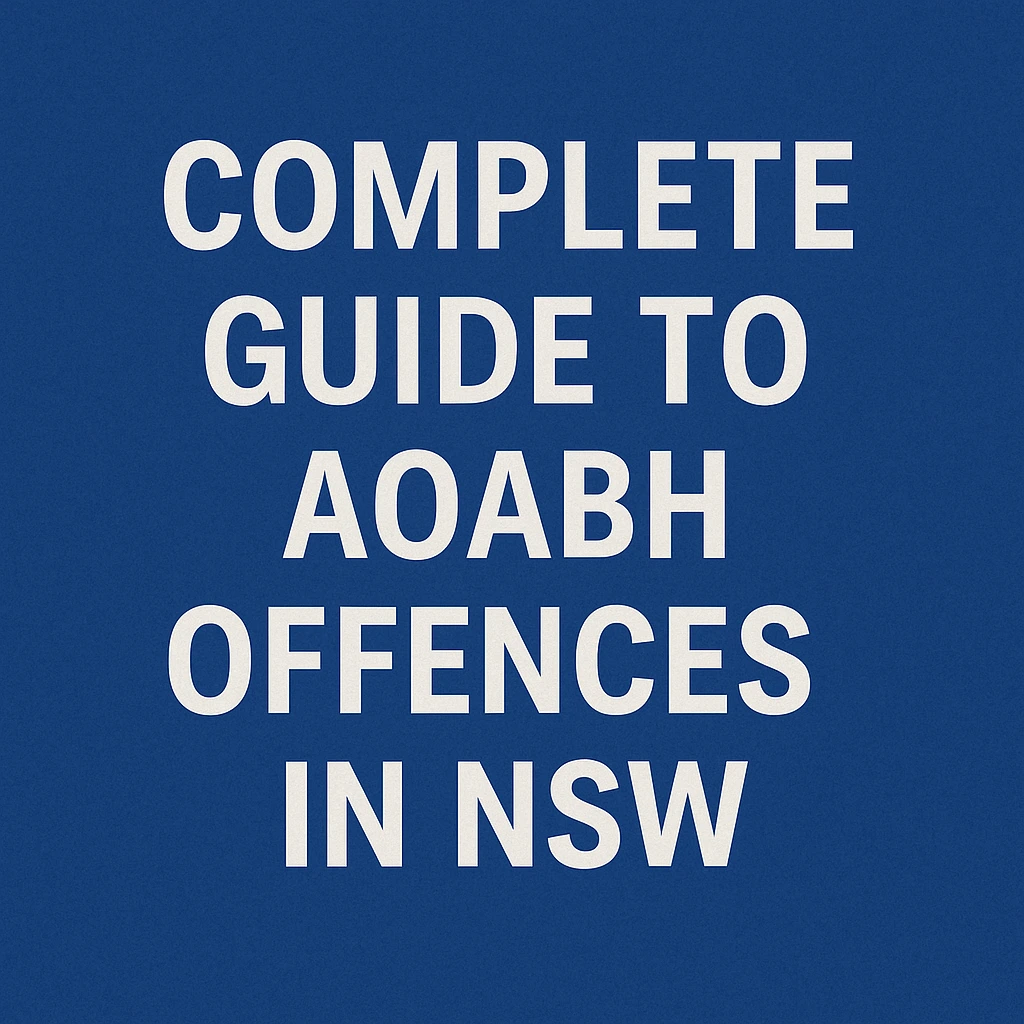Complete Guide to Common Assault Charges in NSW
Common assault is one of the most frequently charged offences in New South Wales. Even though it is considered a lower-level assault compared to offences involving physical injury, a common assault charge is still a serious legal matter. If you have been accused, you may be wondering how serious is a common assault charge or even what is common assault under NSW law. This comprehensive guide explains the common assault meaning under NSW law, potential penalties, and what to expect – especially if it’s your first offence. It also covers how common assault relates to domestic violence and why it’s crucial to seek advice from experienced common assault lawyers as early as possible. (Note: the term “common” assault doesn’t mean the offence is trivial – it simply denotes the basic form of assault without injury, distinguishing it from more serious assaults that cause harm.
Understanding the Offence of Common Assault
In NSW, the offence of common assault is defined in Section 61 of the Crimes Act 1900 (NSW). This law essentially sets out the common assault definition as the unlawful and intentional (or reckless) use of force against another person without their consent causing them apprehension of fear. For example, spitting on someone or raising a fist to threaten immediate harm can be enough to commit a common assault, even if no injury results – such actions clearly fall within the common assault definition in NSW. In simple terms, the common assault meaning under the law is any unwanted physical contact or aggressive act that makes a person fear immediate violence (as long as no actual bodily harm is caused). In other words, that is essentially what is common assault under NSW law.
Under Section 61, a common assault charge carries a maximum penalty of two years’ imprisonment upon conviction. This makes common assault a Table 2 offence (“T2”) under the law. As a common assault T2 charge, it is usually dealt with in the Local Court, and the prosecution can elect to have it heard in a higher court only in some circumstances. In practice, most common assault cases remain in the Local Court jurisdiction.
Common Assault in Domestic Violence Cases
Many common assault charges arise from domestic or family incidents. When a common assault involves people in a domestic relationship (such as partners or family members), it is tagged as a domestic violence offence. A common assault DV T2 charge refers to a domestic violence-related common assault, which is still prosecuted under Section 61 of the Crimes Act. The “DV” label indicates the offence occurred in a domestic context, and the courts treat these situations very seriously. NSW Police also have a pro-prosecution policy in domestic violence matters – they often proceed with charging and prosecuting a common assault (DV) case even if the victim is reluctant or declines to give evidence, in order to protect the victim.
If you are facing a NSW common assault allegation tied to domestic violence, you will likely also be subject to an Apprehended Domestic Violence Order (ADVO). An ADVO is a court order designed to protect the alleged victim by imposing restrictions on the accused (for example, not to approach or contact the person, such as not approaching the person at home or work, not contacting them directly or indirectly, and other conditions to prevent harassment). Breaching an ADVO is a separate criminal offence.
It is important to note that a domestic violence common assault is legally the same offence as any other common assault – the difference lies only in the context. Being a common assault DV T2 matter means it is a Table 2 offence in a domestic setting. As with any common assault T2 charge, it will usually be finalised in the Local Court rather than a higher court. There are no higher maximum penalties specifically for domestic cases of common assault, but courts often consider domestic assaults as an aggravating factor in sentencing.
Penalties and Consequences of Common Assault
The maximum common assault penalty in NSW is two years’ imprisonment. By comparison, the more serious offence of assault occasioning actual bodily harm (an assault causing injury) carries a higher maximum penalty of five years’ imprisonment. This underscores that common assault, while serious, is the lowest tier of assault charges in terms of statutory penalties. However, most cases result in penalties far less than the maximum, depending on the severity of the incident and the offender’s circumstances. Courts have a range of sentencing options for common assault, including fines, Conditional Release Orders (CROs) (which may involve a good behaviour bond, with or without a conviction), Community Correction Orders (CCOs), or in more serious instances, terms of imprisonment.
In deciding an appropriate common assault penalty, the court will consider various factors. These include the seriousness of the conduct (for instance, whether any threats or weapons were involved), whether the offence was committed in a domestic context, the offender’s prior criminal history, and any signs of remorse or cooperation. Such factors help the Magistrate determine whether a more lenient outcome (like a bond or fine) or a harsher punishment (such as jail time) is warranted.
So, how serious is a common assault charge? While it is the lowest-level assault charge, it still results in a criminal record if you are convicted. Having any violent offence on your record can impact your employment opportunities, travel (some countries may deny visas to those with assault convictions), and even firearms licensing. The courts treat violence seriously even at this level, especially if the incident involved vulnerable victims or was part of a pattern (like repeated domestic violence). In short, a common assault NSW conviction is serious enough to carry significant consequences, even if you avoid jail.
First Offence for Common Assault in NSW
If it is your common assault first offence NSW, the court will take your lack of prior convictions into account. First-time offenders often have a better chance of receiving a more lenient outcome. In relatively minor cases – for example, a spontaneous scuffle with no injuries – the Magistrate might be persuaded to grant a Conditional Release Order without conviction. This means you avoid a criminal conviction if you comply with good behaviour conditions.
However, a common assault first offence NSW is not an automatic “free pass.” The outcome still depends on factors like the circumstances of the assault, whether you pleaded guilty early, showed remorse, or if the offence occurred in a domestic violence setting (which tends to be viewed more harshly). Even as a first offence, if the facts are serious – for example, an unprovoked attack or an assault on a police officer – the court could record a conviction and impose heavier penalties. Each case is assessed on its own merits. For instance, someone with no criminal history who impulsively slaps another person in an argument maybe spared a conviction, whereas a repeat offender or a more serious incident could lead to a conviction and a tougher penalty even on a first offence.
Defences to a Common Assault Charge
Facing common assault charges does not automatically mean you will be found guilty. There are several legal defences that an accused person can raise if such defences are applicable. One of the most common is self-defence – if you genuinely feared immediate harm to yourself or someone else, and your actions were reasonable in response to the threat, you may be found not guilty. For instance, if you pushed someone to prevent them from hitting you, that might be lawful self-defence rather than a criminal assault.
Other defences include consent (in rare situations, such as an agreed sparring session or sport – noting that one cannot consent to serious injury), accident (no intent to apply force, e.g. you tripped and unintentionally bumped someone), or being wrongly accused (mistaken identity or false allegations). In some situations, duress (being forced to commit the assault) or necessity (acting to prevent a greater harm) may also be argued, although these defences are less common. The prosecution must prove beyond reasonable doubt that you intentionally or recklessly applied force (or threatened to) without lawful excuse. If they fail to prove an element of the offence, you are entitled to be acquitted of the common assault charge.
Defending such a charge can be complex. It often involves scrutinising witness statements, any CCTV footage or other evidence, and examining the circumstances of the incident. An experienced lawyer can advise you on whether you have a viable defence, or if it might be better to negotiate with prosecutors or to plead guilty in exchange for a lighter sentence. If you plead not guilty, the case will proceed to a defended hearing in the Local Court. During the hearing, witnesses give evidence and are cross-examined, and a Magistrate decides the verdict based on whether the charge is proven beyond reasonable doubt. This formal process makes it essential to prepare your case thoroughly with professional help.
Why You Should Seek Legal Advice
A common assault allegation can be stressful and confusing, especially if you have never dealt with the criminal justice system before. The decisions you make early on – such as what to say to police, or whether to plead guilty or not guilty – can significantly affect the outcome of your case. This is why it’s crucial to consult with knowledgeable common assault lawyers as soon as possible after being charged.
A solicitor with experience in assault cases will explain your options and rights in plain language. They can represent you in court, help gather evidence (for example, witness statements or medical reports), and make persuasive submissions on your behalf. Good legal representation may mean the difference between a conviction and an acquittal, or it may affect whether you receive a heavy penalty or a more lenient sentence. Every case is different, so having a lawyer familiar with common assault NSW matters can ensure you receive advice tailored to your situation.
Contact AMA Legal
If you or a loved one has been charged with a NSW common assault offence, our team at AMA Legal is here to help. We understand that every case is unique. We offer a personalised approach to guide you through the criminal justice process.
Contact us today for a confidential consultation. Our experienced lawyers will assess your situation, advise on the best course of action, and vigorously defend your rights.





